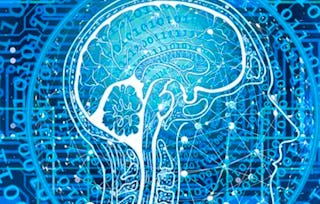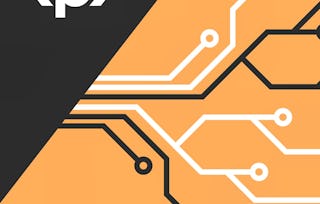This comprehensive Supervised and Unsupervised Machine Learning program will equip you with essential skills for data modeling and analysis. You’ll master regression techniques, classification models, and clustering algorithms to address real-world challenges and drive impactful data solutions.

Supervised Learning Regression Classification Clustering

Supervised Learning Regression Classification Clustering
This course is part of AI ML with Deep Learning and Supervised Models Specialization

Instructor: Simplilearn Instructor
Included with
Recommended experience
What you'll learn
Master linear and logistic regression techniques
Apply Decision Trees, Random Forest, and Naive Bayes models
Use K-Means Clustering for data segmentation
Solve real-world problems with machine learning methods
Skills you'll gain
- Machine Learning
- Applied Machine Learning
- Decision Tree Learning
- Classification And Regression Tree (CART)
- Predictive Analytics
- Supervised Learning
- Classification Algorithms
- Unsupervised Learning
- Bayesian Statistics
- Data Modeling
- Random Forest Algorithm
- Machine Learning Algorithms
- Logistic Regression
- Regression Analysis
- Data Analysis
- Skills section collapsed. Showing 7 of 15 skills.
Details to know

Add to your LinkedIn profile
2 assignments
See how employees at top companies are mastering in-demand skills

Build your subject-matter expertise
- Learn new concepts from industry experts
- Gain a foundational understanding of a subject or tool
- Develop job-relevant skills with hands-on projects
- Earn a shareable career certificate

There are 2 modules in this course
This Supervised and Unsupervised Machine Learning program covers essential techniques for data modeling and analysis. Start with regression analysis, mastering linear regression for continuous variable prediction and logistic regression for binary classification. Learn to select the best approach for your projects. Explore classification models, including Decision Trees for data splitting, Random Forest for robust predictions, and Naive Bayes for probabilistic classification. Gain practical skills to apply these methods in real-world scenarios. Dive into unsupervised learning with the K-Means Clustering algorithm, understanding how it groups data into clusters based on similarities. Apply it to challenges like market segmentation and image compression. This program equips you with essential machine learning skills for impactful data solutions.
What's included
25 videos3 readings1 assignment
Explore clustering techniques, focusing on K-Means, its applications, and real-world use cases.
What's included
7 videos1 reading1 assignment
Earn a career certificate
Add this credential to your LinkedIn profile, resume, or CV. Share it on social media and in your performance review.
Instructor

Offered by
Explore more from Data Analysis
 Status: Free Trial
Status: Free Trial Status: Free Trial
Status: Free Trial
Why people choose Coursera for their career

Felipe M.

Jennifer J.

Larry W.

Chaitanya A.

Open new doors with Coursera Plus
Unlimited access to 10,000+ world-class courses, hands-on projects, and job-ready certificate programs - all included in your subscription
Advance your career with an online degree
Earn a degree from world-class universities - 100% online
Join over 3,400 global companies that choose Coursera for Business
Upskill your employees to excel in the digital economy
Frequently asked questions
Regression predicts continuous outcomes (e.g., sales forecast), classification assigns data into categories (e.g., email spam detection), and clustering groups data based on similarities (e.g., customer segmentation).
A machine learning course can vary in duration, typically lasting from a few weeks for beginner-level programs to several months for comprehensive or advanced courses.
Clustering is an unsupervised learning technique in AI that groups similar data points into clusters, helping to uncover patterns and insights, such as segmenting customers by behavior.
More questions
Financial aid available,



